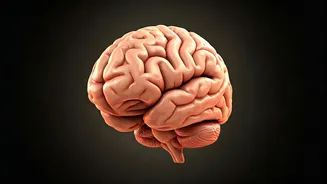Mental Fitness Defined
The concept of mental fitness, though seemingly abstract, is quite concrete in its application. It is the active cultivation of mental resilience, emotional
intelligence, and cognitive sharpness. It's not merely about the absence of mental illness, but rather the proactive strengthening of our minds to better navigate the challenges of life. This involves practices that promote emotional regulation, enhance focus, and foster a positive mindset. Think of it as preventative care for your mind, building a strong foundation to withstand stressors and setbacks. Regular 'workouts' in the form of mindfulness, positive self-talk, and cognitive exercises are key components of this mental gym. The beauty of mental fitness lies in its accessibility; it can be integrated into everyday routines, empowering individuals to take control of their mental well-being.
Mindfulness & Focus
One of the most powerful tools in the mental fitness arsenal is mindfulness. This practice involves paying attention to the present moment without judgment. It helps to quiet the mental chatter, reducing stress and anxiety, and improving focus. Start with simple exercises, such as focusing on your breath for a few minutes each day. As you become more comfortable, you can extend the practice to other activities, such as eating or walking. Another crucial aspect is cultivating focused attention. In a world of constant distractions, it's easy to lose focus. To combat this, set aside dedicated time for focused work, free from interruptions. Use techniques like the Pomodoro Technique (working in focused bursts with short breaks) to enhance concentration. By consistently practicing mindfulness and focused attention, you can significantly enhance your cognitive abilities and build a more resilient mind.
Emotional Regulation
Understanding and managing emotions is fundamental to mental fitness. Emotional regulation involves recognizing, accepting, and responding to emotions in a healthy way. This isn't about suppressing feelings; it's about processing them constructively. Start by identifying your emotional triggers – the situations or thoughts that tend to elicit strong emotional responses. Once you're aware of these triggers, you can develop coping mechanisms to manage your reactions. Deep breathing, journaling, and talking to a trusted friend or therapist are all valuable tools. Building emotional resilience involves learning from difficult experiences and viewing them as opportunities for growth. It also requires self-compassion, treating yourself with kindness and understanding during challenging times. By actively working on emotional regulation, you can navigate life's ups and downs with greater ease and maintain a more balanced mental state.
Positive Self-Talk
The language we use to communicate with ourselves, or self-talk, has a profound impact on our mental well-being. Positive self-talk involves replacing negative or critical thoughts with more supportive and encouraging ones. Identify negative thought patterns, such as self-doubt or perfectionism. Challenge these thoughts by questioning their validity and replacing them with more realistic and compassionate statements. For instance, instead of thinking, 'I'm going to fail,' try, 'This is a challenge, and I will do my best.' Cultivate a habit of gratitude, focusing on the good things in your life. This can shift your perspective and boost your mood. Surround yourself with positive influences, such as supportive friends and inspiring role models. Remember, the way you speak to yourself sets the tone for your entire day, so make it kind, encouraging, and positive.
Cognitive Exercises
Just as physical exercise strengthens the body, cognitive exercises sharpen the mind. These exercises help improve memory, focus, and problem-solving skills. Puzzles, such as Sudoku or crosswords, are great for stimulating the brain. Learning a new skill, such as playing a musical instrument or speaking a new language, provides excellent cognitive stimulation. Engage in activities that challenge your thinking, like reading thought-provoking books or participating in debates. Cognitive exercises are not only fun but also help to build mental flexibility, allowing you to adapt to new situations and think more creatively. Make it a regular habit to incorporate these exercises into your routine, and you’ll find that your cognitive abilities improve over time, enhancing your overall mental fitness. The key is consistency; even a few minutes each day can make a significant difference.






















